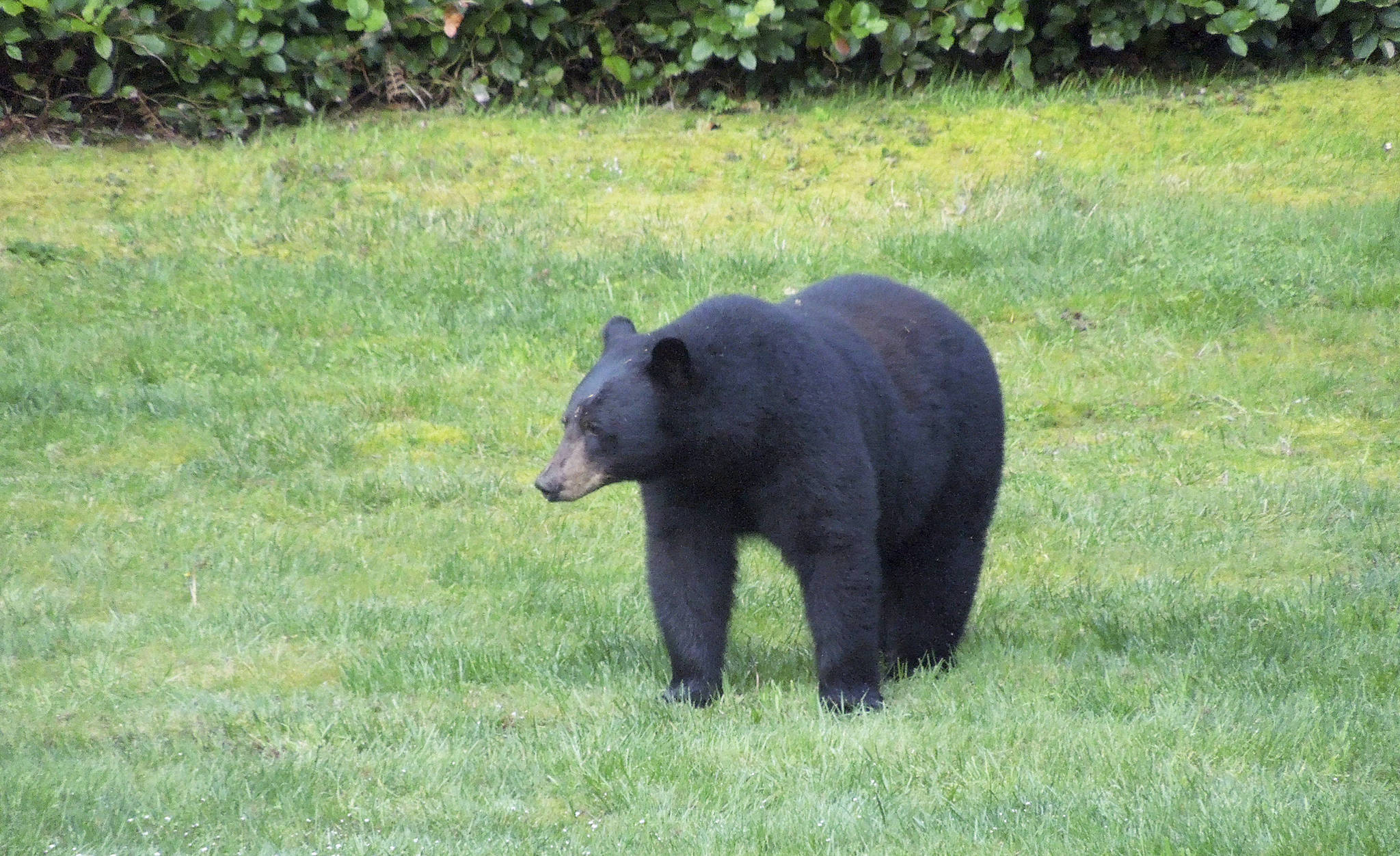Another lonely animal has made a mysteriously motivated trek to Whidbey Island.
Coupeville resident Glenn Hoffman awoke Tuesday morning to find his bird feeders in disarray at his home near the Kettles Recreation Area. Underneath the feeders, he spotted a hard-to-miss, lounging black bear. The hefty critter joins Whidbey’s lone elk, Bruiser, as another solitary male animal on the island.
Hoffman and his wife were able to snap some pictures of the bear as it “slowly sauntered off.”
“It was kind of a surprise to see it,” Hoffman said. “I was told they’re not here anymore.”
He wasn’t the only one surprised. Ralph Downes, a state Department of Fish and Wildlife enforcement officer, said that the Hoffmans’ photos document the first confirmed bear sighting on Whidbey Island in decades.
“It’s certainly unique,” Downes said. “It’s not impossible. Bears are excellent swimmers.”
Downes said he received a report Monday evening of a bear spotted in the Fort Casey area in addition to Hoffman’s early-morning sighting. From looking at pictures, he speculates it’s a teenage male. Hoffman estimates the fuzzy boy weighed around 300 pounds; Downes said he heard reports it was closer to 400 or 500 pounds.
The omnivore may be big, with big teeth and big claws — but Downes said there’s no need to worry.
According to Popular Science magazine, American black bears are the “friendliest of all bears” and tend to be easily frightened away.
Hoffman said his backyard freeloader ate about three pounds of bird food and then slowly moseyed west. Downes said the only behavior change people should consider at this point is bringing in bird feeders.
Steve Marx, with Island County Public Works, said Thursday morning he’d send out a notice so people are aware when using the nearby county recreation area, but he shared Downes’ lack of concern.
There was a similar reported sighting on Camano Island last week near Smith and Juniper Beach roads. Although he doesn’t know for sure, Downes said he thinks it’s likely to be the same one. Black bears are mostly solitary creatures that cover large territories and generally don’t cause problems until they decide to hang around.
“Obviously, he’s a wandering bear,” Downes said. “The question is, is he done wandering?”
• Bear sightings can be reported to the state Department of Fish and Wildlife or Washington State Patrol



